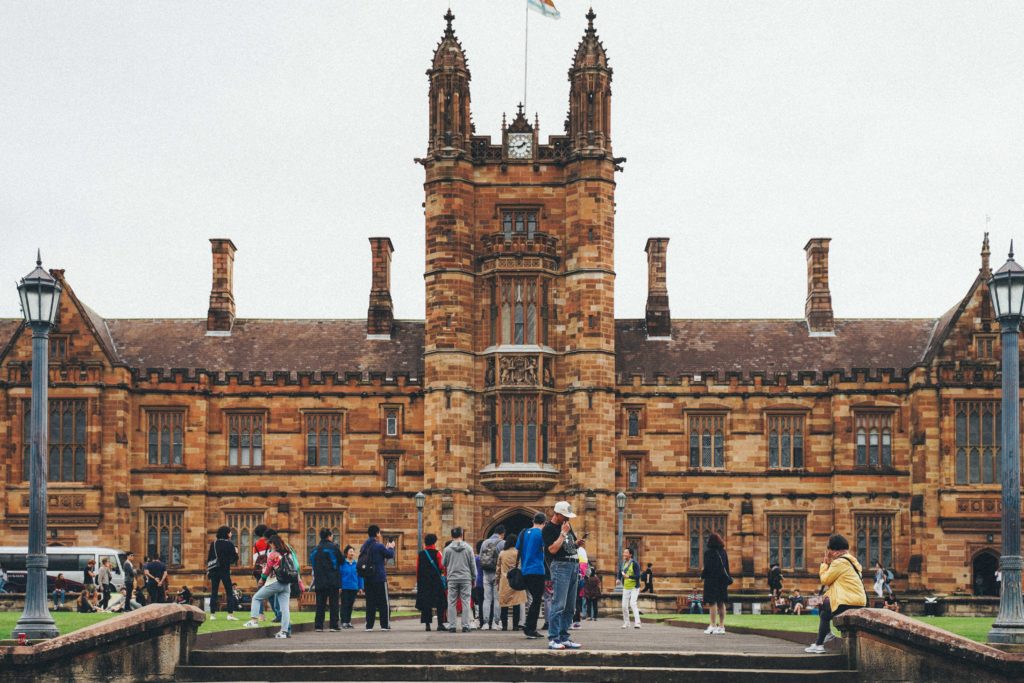In Australia, you can be walking through the busy streets of Sydney and, just a few hours later, you could be hiking in the Blue Mountains or relaxing by the beach in Newcastle. One of the benefits of Australia’s diverse landscape is that you don’t have to travel far to find a completely new cultural experience to immerse yourself in.
This means that when you’re deciding on a university, college or school, you need to consider the kind of lifestyle that suits you. Are you desperate to be part of the hustle and bustle of a big city, or would you prefer a slower, community-based regional town?
We suggest opting for something a little outside of your comfort zone in order to have a truly unique experience, but if you’re finding it hard to choose, here’s a rundown of what you can expect in the city and country.
Entertainment and socialising
City
With cities in Australia offering such varied experiences – Melbourne for its art scene or the Gold Coast for its relaxed beach vibes – you’ll find there’s so much for you to do, see, eat and experience. Boredom will be hard to come by when you’re embedded in the heart of one of these cities, so make sure you still find time to hand in your assignments and spend enough time on your studies.
It’s easy to feel a little lonely when you’re studying in the middle of a thriving city. With so many entertainment options at your fingertips, it can be a bit harder to bump into someone from your tutorial on a Friday night, as your cohort is likely to be socialising across all ends of the city.
On the plus side, city-based educational institutions attract a lot of international students. RMIT in Melbourne is the most popular university among international students, followed by Monash University in Melbourne and Curtin University in Perth. So, if you’re wanting to find other people who are in the same situation as you, an educational institution in the city might be the best option.
Country
For a lot of rural and regional towns that house universities and colleges, their culture is underpinned by the students who go there. Bathurst (the home of Charles Sturt University) is quite a sleepy country town over semester breaks, but during the semester, the town is buzzing with youthful energy. While there are definitely not as many pubs, bars and restaurants as there are in big cities, what country towns do have is a sense of community.
If you enrol in a small town educational institution, you’ll probably know the names of most of the people in your class, and it’s likely that you’ll live on campus and really get to know your dorm mates. If you’ve grown up in a city and you’re looking to experience something outside the box, the country life could be right up your alley. Plus, think about how cool it would be to tell your friends back home that you saw a real-life kangaroo from your bedroom window.
Opportunities
City
There’s no denying that most job and internship opportunities will be based in the major cities. Sydney, for example, is well known for legal and financial services jobs, so if you’re studying something in this realm, you might want to consider embarking on your career there. If you’ve always had your sights set on being a doctor, the University of Melbourne is thought to offer the best course. If it’s a corporate job you seek, most major cities are packed with potential opportunities.
Country
While it can be tricky to find the work experience that your course might require in a country town, the good news for those who do is that they’ll get the chance to do more than their city-based counterparts. For example, if you’re a journalism student and you manage to get a cadetship with a rural newspaper, chances are you’ll be out in the field filing reports before you know it. If you were in the city, however, you might have to spend a little more time getting coffees or doing administrative tasks before you get your big break. While the opportunities might be fewer in the country, the quality of the experience can be superior.
Accommodation
City
By living in a city, you’ll probably have a bit more choice when it comes to accommodation. Cities offer several different accommodation types, including managed student accommodation, share houses, private rentals, dorms and colleges, and more. You can usually find something to suit your needs and budget, but it is worth noting that big cities tend to be more expensive than country towns. Factor how much you want to spend on accommodation into your decision, as budget is a big consideration when choosing where to live.
Country
Campus living is very common for students living in the country. Even local students, who were born and raised in Australia, can be very far from home in the country. So, regional educational institutions have a strong focus on creating a ‘home away from home’. Staff put a lot of time and effort into creating activities and social events to encourage a sense of community, and you’ll most likely have a Residential Advisor (a third or fourth-year student) who will live in your dorm and help you settle in.
Budget
City
Cities are generally more expensive than regional areas, especially when it comes to accommodation costs. Depending on which city in Australia you choose, you could be spending up to $400 per week for a room in a share house. In saying that, eating out is sometimes cheaper in major cities because there’s more competition. Groceries can be cheaper, too, as there are fewer costs related to transporting food and other products.
If you choose to live in the city, you can get a clearer idea of your budget by using our Cost of Living Calculator.
Country
Rent can be very affordable in regional areas, and you’ll usually get more space and amenities for the price you pay. It’s worth noting, though, that eating out and buying groceries can be more expensive in regional areas.
Educational institutions
Taking the top ranking spot in the list of Australia’s top universities (and 24th in the world) is Australian National University (ANU) in Canberra. The city of Canberra is an interesting blend of city and country. It’s the capital city of Australia with the seventh-largest population in the country, but it has all the charm and appeal of a country town. Canberra is the political epicentre of Australia, housing Parliament House and many other national government departments, but it has a more relaxed vibe compared to other political heartlands like Washington DC.
The other top ten universities in Australia are:
- University of Melbourne, Victoria (city)
- University of Sydney (city)
- University of New South Wales (city)
- University of Queensland (city)
- Monash University, Victoria (city)
- University of Western Australia (city)
- University of Adelaide (city)
- University of Technology, New South Wales (city)
- Newcastle University, New South Wales (regional)
Yes, the majority of the ‘prestigious universities’ are based in the main cities, but that doesn’t mean that a rural or regional educational institution isn’t right for you. If you want to be a police officer, for example, Charles Sturt University’s Goulburn-based campus is the place to be. Or, why not try Charles Darwin University in the Northern Territory? It’s one of five top Australian universities for graduate employment and salary outcomes. Plus, regional Australia home to several fantastic TAFE institutes and training provider.
While you’re bound to have a very different experience based on whichever option you choose, if you’re open to trying something new, you’ll have a great time regardless. Like most things in life, your experiences are what you make of them.




